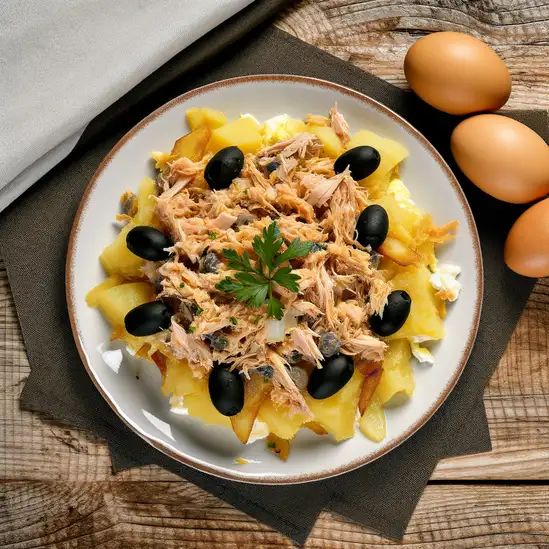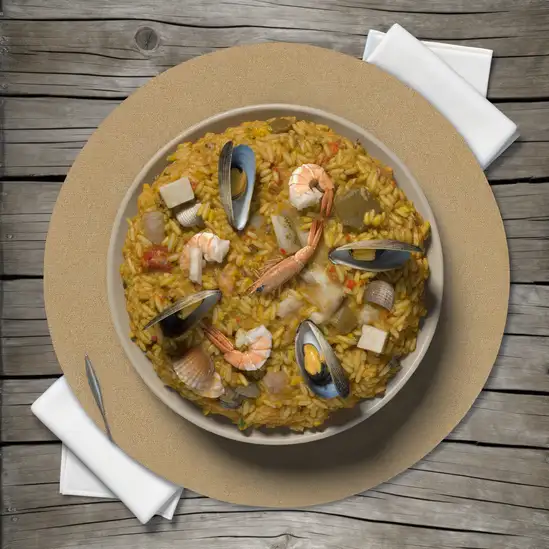



If you ever find yourself wandering through Portugal,Ota is one of those places that quietly sneaks under your skin. It’s not loud or flashy,but there’s a gentle rhythm to the town that feels like a warm embrace. Imagine strolling down narrow cobbled streets where the scent of freshly baked bread mingles with the earthy aroma of nearby pine forests. The sunlight filters softly through the leaves,casting playful shadows on whitewashed walls,and the distant chatter of locals blends with the occasional clink of coffee cups from a cozy café. Ota carries a timeless charm,where tradition and everyday life intertwine effortlessly. You’ll notice the locals’ easy smiles and the way they greet each other with genuine warmth,making you feel like you’re part of the community rather than just a visitor. The town’s small market bursts with vibrant colors—ripe oranges,sun-kissed tomatoes,and fragrant herbs—inviting you to taste the freshness of the region. Sitting down for a meal here is a sensory delight:the rich flavors of homemade olive oil,the subtle smokiness of grilled fish,and the sweet finish of a local pastry that melts in your mouth. What really stays with you about Ota is its peaceful pace and authentic spirit. It’s a place where you can slow down,breathe deeply,and soak in the simple pleasures—whether that’s watching the sunset paint the sky in shades of pink and gold or listening to the soft hum of life unfolding around you. Ota doesn’t shout for attention,but it leaves a lasting impression on your heart.
The information on this page is currently being reviewed by Tripkliq and should be used as a guide only
Eng word: Hello
Eng pronunciation: Oh-lah
Local language: Olá
Eng word: Goodbye
Eng pronunciation: Ah-deh-oosh
Local language: Adeus
Eng word: Thank you
Eng pronunciation: Oh-bree-gah-doo
Local language: Obrigado
Eng word: How much
Eng pronunciation: Kwahn-too koos-tah
Local language: Quanto custa
Eng word: Toilet
Eng pronunciation: Bahn-yay-roo
Local language: Banheiro
Eng word: Help me
Eng pronunciation: Ah-zhoo-dee mee
Local language: Ajude-me
Eng word: Yes
Eng pronunciation: Seem
Local language: Sim
Eng word: No
Eng pronunciation: Now
Local language: Não
Eng word: Excuse me
Eng pronunciation: Kohm lee-sen-sah
Local language: Com licença
Ota, located in the Lisbon District, has historically been a strategic point due to its proximity to the Tagus River and its central position in Portugal. This made it an important area for trade and transportation during the medieval period.
During the Age of Exploration, Ota played a supporting role as a logistical hub for the preparation of expeditions. Its location near Lisbon made it a key area for storing supplies and organizing voyages.
Ota has historical ties to Portuguese royalty, as it was often visited by members of the royal family during their travels. The region's natural beauty and strategic importance made it a favored stopover.
Ota is home to several historic churches that reflect its rich cultural and religious heritage. These churches, with their intricate architecture, are a testament to the city's historical significance in the region.
Historically, Ota has been known for its fertile lands and agricultural production. The region's vineyards and olive groves have contributed to its economic and cultural identity over the centuries.
Archaeological evidence suggests that Ota was influenced by Roman settlements in the region. The Romans contributed to the development of infrastructure and agriculture, leaving a lasting impact on the area.
During the Napoleonic Wars, Ota's strategic location made it a key area for military movements. The region witnessed the passage of troops and played a role in the defense of Portugal.
Ota is known for its traditional Portuguese architecture, including charming whitewashed houses and cobblestone streets. These features provide a glimpse into the city's historical and cultural past.
In the 20th century, Ota became known for its connection to Portuguese aviation history. The area was considered for the development of an airport, highlighting its strategic importance in modern times.
In Ota, the most common Power Adaptor is Type C, Type F.



A traditional Portuguese dish made with shredded salted cod, onions, and thinly chopped fried potatoes, all bound together with scrambled eggs and garnished with black olives and parsley.

Famous Portuguese custard tarts with a flaky pastry crust and a creamy, sweet filling, often enjoyed with a sprinkle of cinnamon and powdered sugar.

A comforting green soup made with kale, potatoes, onions, and chorizo, often served as a starter in many Portuguese meals.

A hearty sandwich originally from Porto, the Francesinha is made with layers of cured meats, sausage, and steak, topped with melted cheese and a rich tomato and beer sauce.

A seafood rice dish that combines various types of shellfish and fish with rice, cooked in a flavorful broth, often seasoned with herbs and spices.
Lisbon feels like a city that’s been gently kissed by the sun and the sea,where every street corner hums with life and stories. Imagine wandering through narrow,cobbled alleys lined with pastel-colored buildings,their azulejo tiles catching the light just right. The air carries a mix of salty ocean breeze and the rich aroma of freshly baked pastéis de nata—those flaky custard tarts you’ll find in every bakery. There’s a rhythm here,a kind of laid-back energy that invites you to slow down and soak it all in.
You’ll hear the soulful strains of fado music drifting from cozy taverns,a haunting soundtrack that feels like the city’s heartbeat. Locals chat animatedly over glasses of vinho verde or ginjinha,a cherry liqueur that’s as sweet as the conversations. The city’s hills offer stunning views where terracotta rooftops spill down toward the Tagus River,and the sunlight shimmers on the water like a thousand tiny mirrors.
Lisbon’s charm lies in its blend of old and new—ancient trams clatter past sleek street art,and centuries-old castles overlook buzzing markets filled with fresh seafood and vibrant produce. It’s a place where history and modern life dance together effortlessly,inviting you to explore,taste,and feel its unique pulse. Trust me,once you’ve wandered through its neighborhoods and tasted its flavors,Lisbon stays with you long after you leave.
Imagine stepping into a place where the ocean breeze carries the scent of blooming jacarandas and the distant hum of traditional Portuguese guitars fills the air—that’s Funchal for you. This city feels like a warm embrace,perched on the lush,rugged coastline of Madeira. Walking through its cobbled streets,you’ll notice vibrant markets bursting with fresh tropical fruits and the rich aroma of freshly baked bolo do caco bread. The colors here are alive:from the deep blue Atlantic stretching endlessly to the bright bougainvillea cascading down old stone walls.
Funchal’s charm lies in its blend of old-world grace and lively,modern spirit. Locals chat animatedly over glasses of Madeira wine in cozy tavernas,while street art peeks out from unexpected corners,telling stories of the island’s history and culture. The city pulses gently with a relaxed rhythm—you can feel it in the slow,deliberate pace of life and the genuine smiles of the people you meet.
Don’t miss the chance to ride the cable car up to Monte,where the views make your breath catch,or to wander through the botanical gardens,where exotic plants and butterflies create a quiet sanctuary. And when night falls,the harbor lights twinkle like stars,inviting you to savor fresh seafood paired with that sweet,fortified wine Madeira is famous for. Funchal isn’t just a destination; it’s a feeling you carry with you long after you leave.
If you ever find yourself dreaming of a place where the ocean breeze carries the scent of salt and blooming hydrangeas,Ponta Delgada is that kind of spot. It’s the lively heart of São Miguel Island in the Azores,and the moment you step into its cobbled streets,you feel this warm,welcoming pulse—like the city itself is breathing with you. The colorful buildings,with their intricate stonework and bright shutters,seem to tell stories of centuries past,while locals chat animatedly over coffee in cozy cafés that spill out onto sun-dappled squares.
Walking along the marina,you’ll hear the gentle slap of waves against boats and the distant call of seagulls,mingling with the laughter of children playing nearby. The air is fresh,tinged with the promise of adventure,whether you’re about to explore volcanic craters or dive into a plate of freshly caught seafood. Speaking of food,don’t miss trying the local cozido—a stew slow-cooked underground by volcanic heat,rich with flavors that feel like a warm hug on a cool day.
What really makes Ponta Delgada special is its blend of old-world charm and vibrant island life. There’s a relaxed rhythm here,where time slows just enough for you to savor a glass of local wine while watching the sun dip behind the hills. It’s a place that invites you to linger,to explore,and to fall a little in love with the simple,beautiful moments that make travel unforgettable.
Imagine stepping into a city where every corner hums with a quiet,soulful energy—that’s Porto. It’s a place where the old world meets a lively,modern pulse,wrapped in the warm glow of terracotta rooftops and the shimmering Douro River. Walking through its narrow,cobbled streets,you’ll catch the scent of freshly baked pastéis de nata mingling with the salty breeze from the Atlantic. The city feels alive but unhurried,like it’s inviting you to slow down and savor each moment.
Porto’s character is deeply rooted in its history,yet it’s effortlessly cool. You’ll find colorful azulejo tiles telling stories on building facades,while locals chat animatedly over glasses of rich,ruby-red port wine in cozy,tucked-away taverns. The sound of Fado music drifts softly from a nearby café,adding a layer of melancholy beauty to the evening air. It’s a city that wears its heart on its sleeve—warm,genuine,and a little bit mysterious.
What really makes Porto stick with you is how it tastes and feels. From the first sip of a perfectly chilled glass of Vinho Verde to the crunch of a francesinha sandwich packed with layers of flavor,the city’s culinary scene is a delicious adventure. And when you climb up to the Dom Luís I Bridge at sunset,watching the city light up like a living painting,you realize Porto isn’t just a place to visit—it’s a place to feel alive.
Imagine stepping into a place where the Atlantic breeze carries the salty scent of the sea,and golden cliffs frame endless stretches of sun-dappled beaches. That’s Lagos,Portugal—a town that feels like a warm embrace from the moment you arrive. The cobbled streets hum softly with the chatter of locals and the clinking of glasses from cozy cafés spilling onto sunlit squares. There’s a laid-back rhythm here,but beneath it pulses a rich history and a vibrant spirit that invites you to slow down and soak it all in.
Wandering through Lagos,you’ll catch the scent of fresh seafood grilling nearby,mingling with the faint aroma of jasmine from hidden gardens. The pastel-colored buildings,weathered by time and salt air,lean into each other like old friends sharing stories. At the marina,fishing boats bob gently,their nets drying in the sun,while the distant call of seagulls blends with the soft crash of waves against the cliffs. It’s a place where every corner reveals a new texture—whether it’s the rough stone of a centuries-old church or the smooth,cool surface of a ceramic tile in a local shop.
What makes Lagos truly special is its balance between the old and the new. You can explore ancient fortresses and then find yourself sipping a glass of vinho verde at a lively bar,surrounded by the laughter of both locals and travelers. The city’s warmth isn’t just in the sunshine—it’s in the people,the flavors,and the stories waiting to be discovered. If you want a place that feels like a heartfelt welcome and a gentle adventure all at once,Lagos is calling your name.
If you wander into Faro,you’ll immediately feel this laid-back,sun-soaked rhythm that’s both calming and quietly vibrant. It’s the kind of place where the old town’s cobbled streets invite you to slow down,and the scent of salty sea air mingles with the faint aroma of freshly baked pastries from a nearby café. Faro isn’t just a gateway to the Algarve; it’s a charming city with its own soul,where history whispers from every corner and locals greet you with genuine warmth.
Strolling through the city,you’ll notice the delicate play of light on the whitewashed buildings,the colorful tiles telling stories of centuries past. The cathedral’s bell tower offers a peaceful lookout,where you can watch fishing boats drift lazily on the Ria Formosa lagoon. At night,the city softens into a cozy glow,and the hum of conversation spills out from small tavernas where you can savor fresh seafood paired with a glass of crisp Portuguese wine.
What really makes Faro special is its blend of old-world charm and natural beauty. You can lose yourself in the maze of narrow streets,then hop on a boat to explore the nearby islands,feeling the breeze and hearing the gentle splash of waves. It’s a place that invites you to breathe deeply,taste slowly,and soak in moments that feel both timeless and refreshingly real.
Scammers may install skimming devices on ATMs to steal card information. Use ATMs in secure locations and check for tampering.
Street vendors may sell counterfeit items like branded bags, watches, or sunglasses at inflated prices, claiming they are authentic.
Some taxi drivers may take advantage of tourists by overcharging or taking unnecessarily long routes. Always confirm the fare or ensure the meter is running.
Unlicensed individuals may pose as tour guides, offering subpar or inaccurate tours for high fees.
In crowded areas or public transportation, pickpockets may target tourists by distracting them or taking advantage of their inattentiveness.
Some restaurants may inflate prices for tourists or add hidden charges to the bill. Always check the menu and bill carefully.
Scammers may approach tourists asking for donations for fake charities or causes, often using emotional stories to pressure them.
Portugal has decriminalized the possession of small amounts of drugs for personal use, including in Ota. However, this does not mean drugs are legal. Possession of small amounts (up to a 10-day supply) may result in a warning, a fine, or mandatory attendance at a rehabilitation program, rather than criminal charges. Trafficking, selling, or possessing large quantities of drugs is still a serious criminal offense and can result in severe penalties, including imprisonment. Tourists should exercise caution and avoid any involvement with illegal substances.
In Ota, Portugal, smoking is regulated under national Portuguese law. Smoking is prohibited in enclosed public spaces, workplaces, public transport, and certain outdoor areas such as playgrounds and areas near schools or hospitals. Designated smoking areas may be available in some establishments, but tourists should always look for signage indicating whether smoking is allowed. Violations can result in fines.
Vaping in Ota, Portugal, is subject to similar regulations as smoking. It is prohibited in enclosed public spaces, workplaces, and public transport. Some establishments may allow vaping in designated areas, but this is not guaranteed. Tourists should be mindful of local rules and avoid vaping in areas where smoking is also banned. Fines may apply for non-compliance.
What are other people saying about Ota?
Recent Social posts about Ota
There is nothing to show you for now.